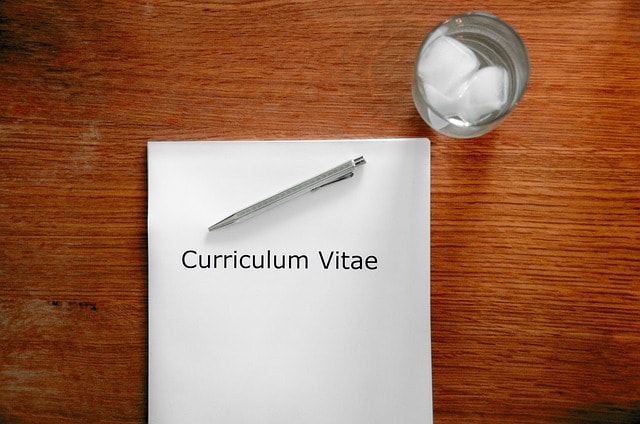
How you can optimally prepare for an interview
Another important aspect in preparing for the interview is to prepare for classic application questions. The interview is often the last hurdle on the way to the dream job. Questions about your strengths and weaknesses often occur. It is important to give authentic and reflected answers. Be honest, but focus on positive examples from your life and career that highlight your talents and qualifications. You should also prepare for questions about the expiry of the job interview and the requirements of the position in order to appear confidently and confidently.
The choice of the right clothing must not be underestimated in preparation for the interview. Your outfit should match both the company and the advertised position. Finally, the first impression often counts more than you think. Whether formal or casual - make sure that you feel comfortable in your outfit in order to appear confidently and convince your conversation partner of your skills.

Summary: The most important steps to prepare for the interview:
1. The importance of preparing for the interview
Preparing for an interview means doing more than just visiting the company website. It is about understanding the culture of the company, reflecting on your own competence and finding the right answers to possible questions. Preparation gives you self -confidence and helps you leave a positive first impression.
2. Research the company thoroughly
An important step, if you want to prepare for an interview, is the company research. Collect information about the company history, mission, vision and values. Also look for current projects and industry -specific challenges with which the company is confronted.
3. Analyze the job description precisely
In order to optimally prepare an interview, you should read the job description carefully. Understand the requirements of the position and consider how your skills and experiences match. In this way, you can specifically respond to the expectations of the employer.
4. Exercise makes the master: answers to frequent questions
It is worth preparing answers to frequently asked questions in the interview. Practice answers to questions such as "What are your strengths and weaknesses?" Or "Why do you want to work with us?". The more you practice, the safer you will appear.
5. Prepare your own questions
A often overlooked aspect in preparing for an interview is to ask your own questions. Good questions show interest and commitment. For example, ask about the next goals of the company or corporate culture.
6. Optimize your own self -presentation
In the interview, you are often asked to introduce yourself. Prepare a short, concise self -presentation that emphasizes your professional success and strengths. So you start the conversation with a strong appearance.
7. Be prepared for stress questions
Some interviews contain stress issues that put you to the test. To prepare for an interview, practice dealing with such questions. Stay calm and concentrated, and take the time for the answer.
8. Punctuality is crucial
Good preparation for the interview also means that you are on time. Plan the journey in advance so that you can avoid delays. Punctuality shows respect and professionalism.
9. Choose the right outfit
The external appearance also plays a role. Make sure to choose adequate clothing that fits the corporate culture. A well -groomed appearance helps you leave a positive impression.
10. Practice body language and attitude
In addition to words, body language also plays an important role in the interview. Practice a firm handshake, upright attitude and eye contact to signal self -confidence and interest.
11. internalize the curriculum vitae
An essential part of the preparation is to know your curriculum vitae in detail. Make sure you can explain your stations and successes precisely and justify gaps or unusual sections on request.
12. Present success experiences in a structured manner
Prepare concrete examples of your professional success. Use the star method (situation, task, action, result) to present your skills and experiences clearly and comprehensibly.
13. convey your own motivation
Another important aspect, if you want to prepare an interview, is to convey your motivation credibly. Think about why you want to work for this company and how your goals fit the position.
14. Use unpleasant topics
If there are gaps in the curriculum vitae or difficult stations, you should consider how you will address them in the conversation. Stay honest and try to focus on the positive.
15. Be prepared for salary questions
Salary negotiations are often a delicate point in the interview. Prepare for it by researching the customary salary framework and have clear ideas about your desired content.
16. Be prepared for virtual interviews
In times of remote work, virtual interviews are increasingly common. Make sure your technology works, your background is tidy and you are undisturbed in a quiet environment.
17. Practical tasks or tests practice
For some interviews, practical tests are part of the selection process. Practice typical tasks in advance that could occur in your professional field to optimally prepare for the interview.
18. Set up on the feedback
Sometimes you get feedback or critical queries directly in the interview. Prepare yourself mentally to process such comments professionally and to react positively to it.
19. After the conversation: thank you and follow up
An often forgotten step in preparation is follow -up after the interview. Thank you by email for the conversation and briefly repeat why you find the position interesting. It is normal to wait impatiently for a message from the employer. This shows professionalism and increases the positive impression.
20. The mental aspect of preparation
Finally, it is important to be mentally prepared for the conversation. Avoid negative stress and go into the conversation with a positive attitude. The quieter and more focused you are, the better you will be able to present yourself in conversation.

Prepare self -presentation and questions
Self -presentation is a central part of the interview. Here are some tips on how to optimize your presentation:
-
Brief idea of your person and professional experience: Start with a brief idea of your person and your professional experience. Concrete relevant stations and successes that are important for the position.
-
Explain your motivation: Illustrate why you apply for this position and what you can do for the company. Show how your goals and values match those of the company.
-
Empire and highlight the strengths and successes: Raise your strengths and professional success. Use concrete examples to illustrate your skills.
-
Talk honestly about weaknesses: Be honest about your weaknesses, but also explain how you work to improve them.
It is also important to prepare for possible questions in the interview. Here are some examples:
-
What are your strengths and weaknesses?
-
Why did you apply for this position?
-
What do you know about our company?
-
How do you deal with stress?
With good preparation for the interview, you will increase your chances of being successful in the application process.
The process and phases of the interview
An interview can be divided into different phases. Here are some examples of how the process is typically designed:
-
The greeting and presentation of the participants: The first impression counts. Pay attention to a firm handshake, eye contact and a friendly smile.
-
The candidate's self -presentation: Use this phase to present yourself and your professional experience. Be concise and focused so that you give a clear overview of your skills.
-
The employer's questions: Prepare for the questions of the employer. Answer honestly and reflect and take the opportunity to emphasize your strengths.
-
The candidate's questions: Ask your prepared questions. This shows your interest and helps you to learn more about the position and the company.
-
The farewell and outlook on the next steps: Thank you for the conversation and ask about the next steps in the application process.
It is important to prepare for every phase of the interview in order to leave a lasting impression.
After the interview
After the interview, it is crucial to thank you and find out how to proceed. Here are some tips:
-
Thank you for the invitation to the interview: Send a short thank you email to the interlocutor. This shows your appreciation and professionalism.
-
Explain your interest in the place: Repeat why you apply for the position and what you can do for the company.
-
Question about the next steps: Inquire when you can expect a decision and what the further course of the application process looks like.
It is also important to reflect on the conversation and check whether the position and the company really suit you.
Tips and checklist
Here are some tips and a checklist to optimally prepare for the interview:
-
Research the company and the position: Find out more about the company and the advertised position.
-
Think about your strengths and weaknesses: Reflect on your personal and professional strengths and weaknesses.
-
Prepare for frequently asked questions: Practice answers to typical questions in the interview.
-
Practice your self -presentation: Prepare a clear and concise self -presentation.
-
Get a list of questions: Prepare your own questions that you want to ask the employer.
-
Thank you after the interview: Send a thank you email to your interlocutor.
-
Think about whether the position and the company really suit you: Reflect on the conversation and your impressions.
Checklist:
-
Company and position researched
-
Strengths and weaknesses considered
-
Frequently asked questions prepared
-
Practiced self -presentation
-
Questions prepared for the employer
-
Thank you after the interview
-
Takeover whether the position and the company really suit you
With these tips and the checklist, you are well prepared for your interview.
If you have further support for preparing for interviews or the entire Application process I am happy to be at your disposal. Just contact me if you are interested in individual application coaching or have offered questions about my.
I look forward to helping you with your career planning!
Arrange the contemplate 1: 1 conversation

